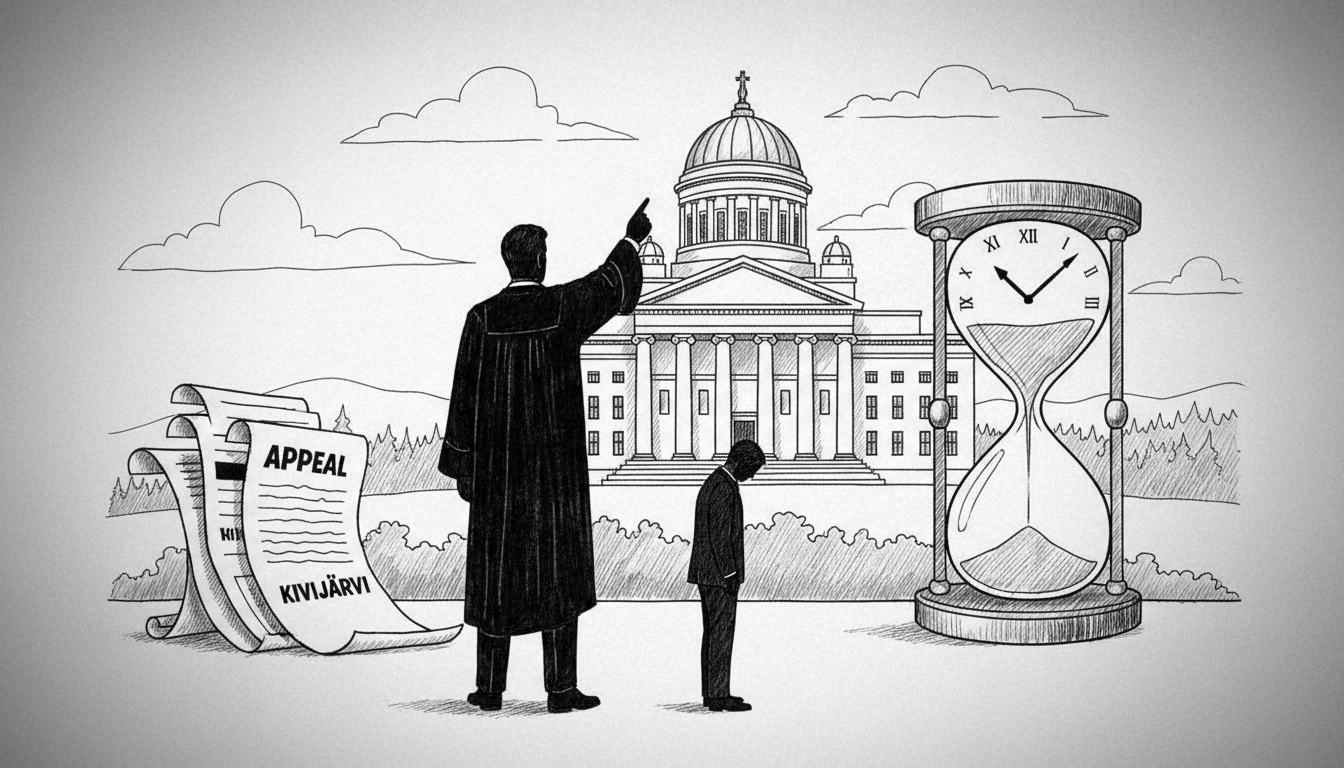Finland's legal system faces a crucial test as prosecutors seek Supreme Court review in a high-profile defamation case involving Kivijärvi municipal manager Pekka Helppikangas. The Vaasa Court of Appeal overturned a previous district court decision that had extended the statute of limitations in the suspected defamation matter. This legal battle now moves to the nation's highest judicial authority, highlighting tensions between municipal governance and freedom of expression protections.
The case originated from alleged defamatory statements made by Helppikangas during his tenure as Kivijärvi's top administrator. Central Finland District Court initially granted prosecutors additional time to pursue charges, but the Vaasa appellate court reversed that ruling in September. Prosecutors now argue the Supreme Court must clarify statute of limitations interpretation in defamation cases involving public officials.
Finnish defamation laws carry particular significance for public servants, balancing reputation protection against democratic accountability. Municipal managers like Helppikangas wield substantial influence over local policy implementation and budget decisions. Their public statements can directly impact community trust in government institutions across Finland's decentralized administrative system.
Legal experts note this case could establish important precedent for how courts handle time limitations in complex defamation investigations. The Supreme Court accepts only a small percentage of appeal applications, typically selecting cases with broader constitutional implications. Their decision whether to hear this appeal will signal the judiciary's view on statutory interpretation in speech-related offenses.
Finland's three-tier court system ensures multiple judicial reviews, but Supreme Court interventions remain rare outside fundamental rights questions. The case emerges amid ongoing debates about free speech boundaries in Finnish politics, where coalition governments often navigate delicate communication challenges. Municipal officials nationwide will monitor this development closely, as the outcome could affect how local leaders engage in public discourse.
Prosecutors must demonstrate their appeal raises legal questions of principle importance beyond this specific case. The Supreme Court's composition includes justices with expertise in administrative law and civil liberties, positioning them to evaluate the appellate court's statutory interpretation. Their ruling could either reinforce or reshape defamation prosecution timelines across Finnish jurisdictions.
This legal proceeding occurs against Finland's broader commitment to transparent governance and accountable leadership. The Nordic country consistently ranks high in international corruption perception indexes, partly due to robust legal frameworks addressing official misconduct. Yet balancing speech protections with reputation rights continues challenging legislators and courts alike.
The Supreme Court's decision on whether to accept the appeal will determine the case's final trajectory. If rejected, the appellate ruling stands and prosecution cannot proceed. If accepted, Finland's highest judicial authority will issue binding interpretation affecting future defamation cases nationwide. Either outcome will clarify legal boundaries for public officials' speech across Finnish municipalities.

